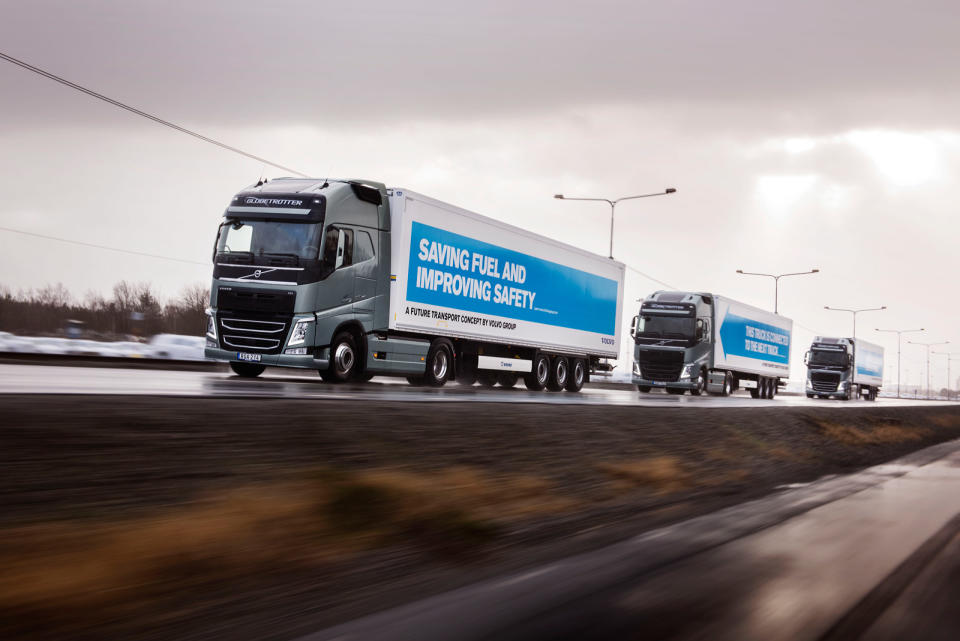Semi-autonomous truck convoys due to hit UK roads next year
Platooning should improve fuel efficiency and reduce congestion.
Convoys of semi-autonomous trucks are expected to be tested on public roads in the UK before the end of next year, the government announced today. The Department for Transport and Highways England have rustled up £8.1 million in funding between them to pass on to the Transport Research Laboratory (TRL), the independent organisation that'll conduct the trials. TRL will start with simulation studies and driver training before moving onto a test track and finally, public roads by the end of 2018.
Platooning, as it's known, is one of the simpler ways of harnessing self-driving technology. While the truck at the front of a convoy remains under human control, trailing vehicles follow its lead autonomously. Wireless connections (aka vehicle-to-vehicle communication) keep all trucks talking to each other so the self-driving members of the conga line can immediately respond to changes in the lead lorry's direction and speed.
With software managing the distance between vehicles, it should be possible to create a much tighter convoy than would be safe if human limbs were in charge of the wheel and pedals. This has the potential to ease congestion, but more importantly reduces drag on the trailing trucks, meaning better fuel efficiency and lower emissions.
TRL has already done some preliminary feasibility studies on the government's instruction. In fact, platooning trials on UK motorways were originally due to start in late 2016, but the project has been delayed for one reason or another. At the time, the Financial Times reported that various manufacturers of heavy goods vehicles were just not particularly keen on taking part.
Several real-world trials of semi-autonomous convoys are taking place elsewhere, and TRL is looking at how these are addressing the technical and practical challenges of public platooning tests. There's no substitute for conducting your own in situ, though, which is why TRL will investigate everything from fuel efficiency to safety, acceptance by drivers and the public, the suitability of UK infrastructure and future, commercial viability.
Not everyone is convinced the UK is the best place for platooning trials, however, with the AA and RAC Foundation already voicing concerns. AA president Edmund King told the BBC: "We all want to promote fuel efficiency and reduce congestion but we are not yet convinced that lorry platooning on UK motorways is the way to go about it. We have some of the busiest motorways in Europe with many more exits and entries. Platooning may work on the miles of deserted freeways in Arizona or Nevada but this is not America."



